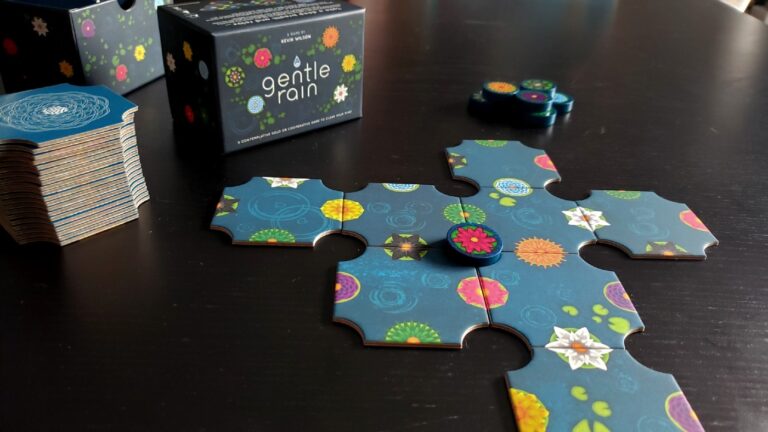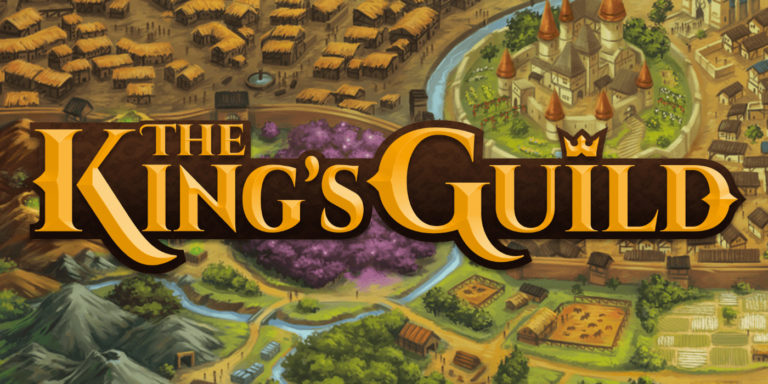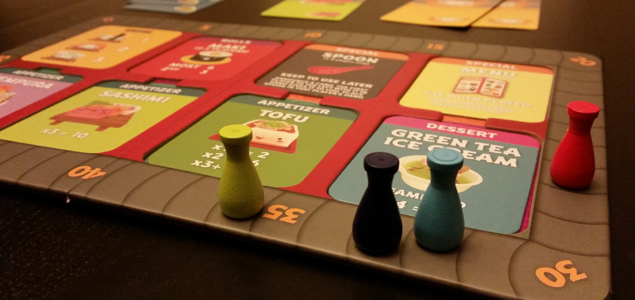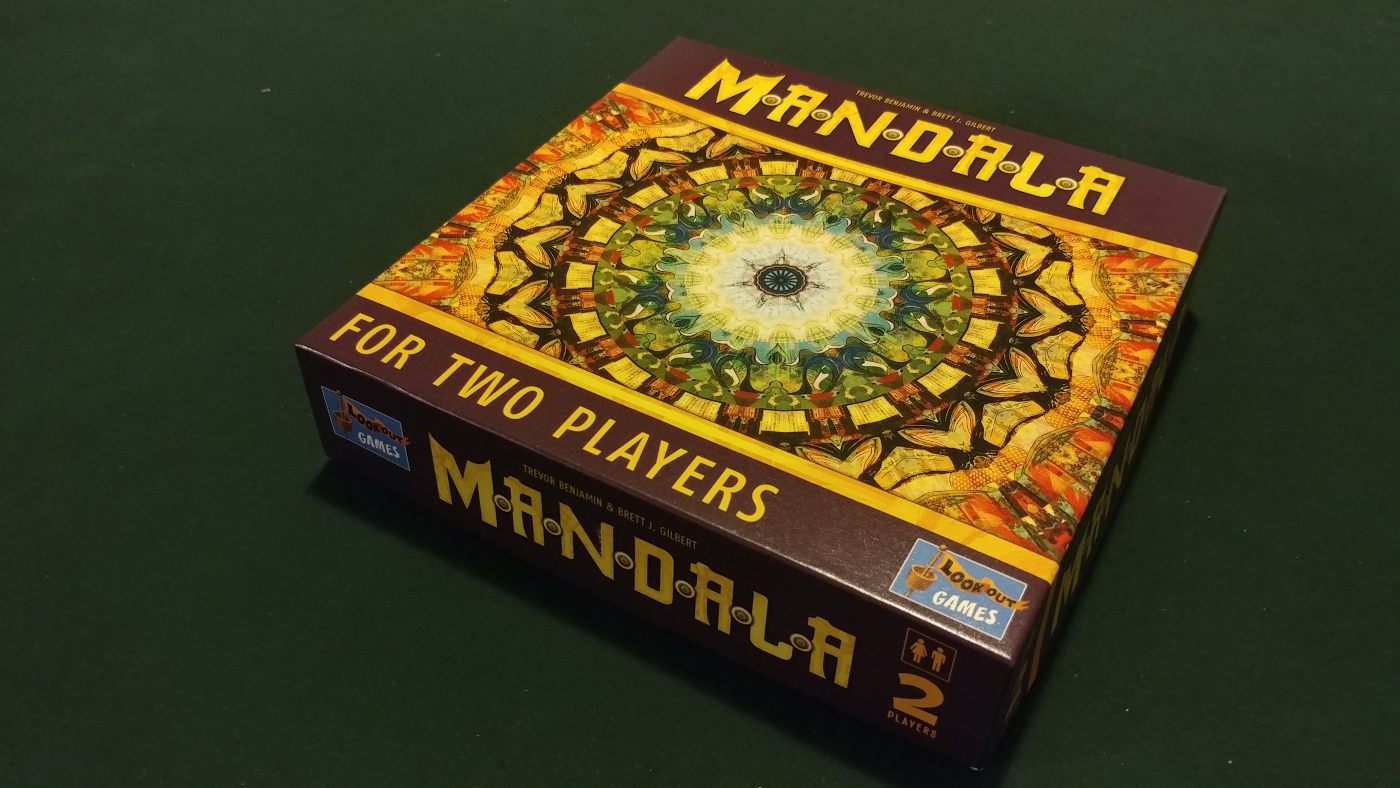
Over the past few years, I’ve become a bit of a connoisseur of two-player games. Since it’s often just my wife and me, we try to find experiences that will cater to our ever-present miniscule player count.
While I often will look for games that have rules sets for two players, these often feel like a diluted version of the game. You know that you were intended to fill a few more chairs around the table before you started playing.
That’s why I often look for games specifically built for two players. My favorite in this category is probably 7 Wonders Duel, but I’ve found others through the years that I thoroughly enjoy.
So when I first heard about Mandala from Lookout Games, I wad instantly intrigued. A simple card game with beautiful art and cool components? Sign me up. But does the gameplay make it worth keeping around? Well, it depends on who you ask.
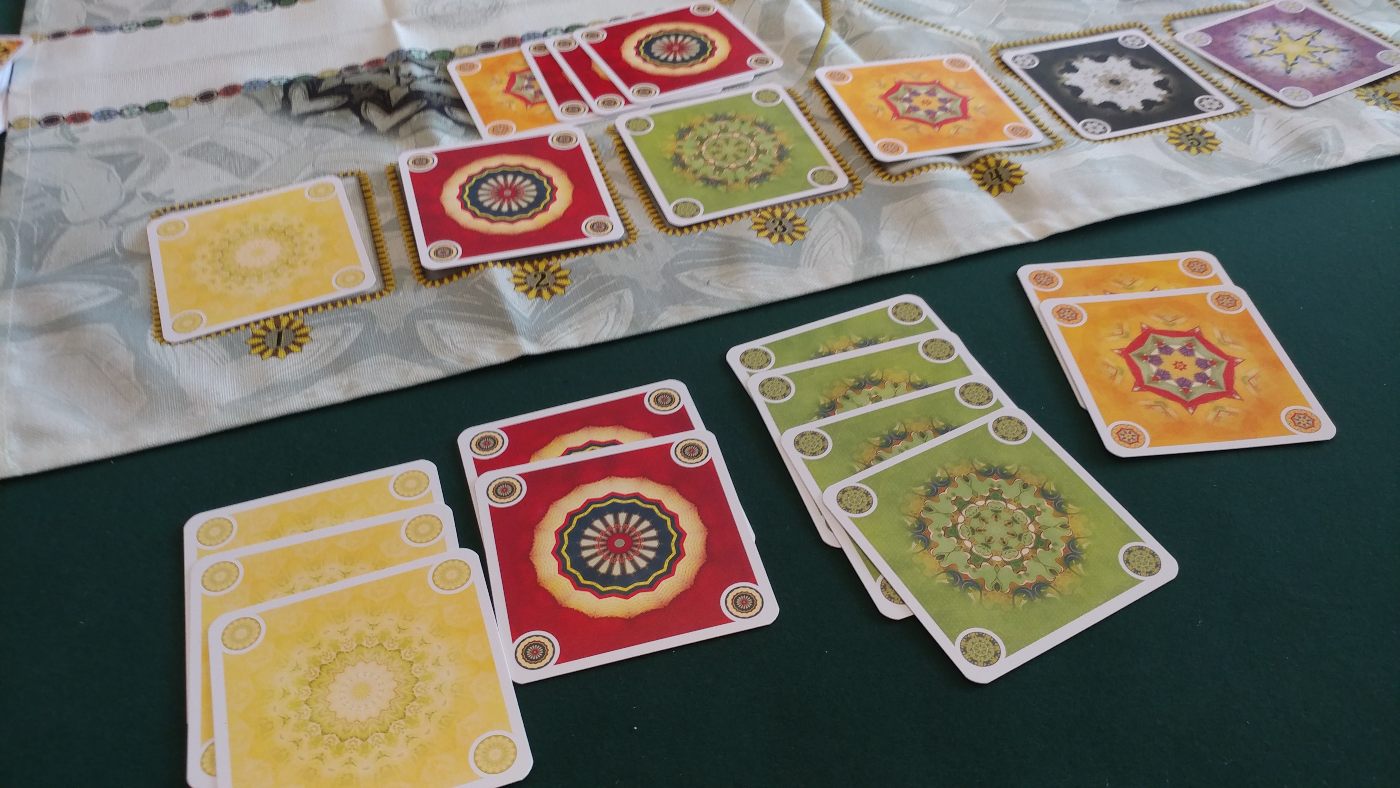
Good Ol’ Rocky Top
At its core, Mandala is a very simple card placement game for two players. Each player seeks to obtain the highest score by building and destroying mandalas using beautiful cards of six different types.
The first thing that stands out in this game is the playmat. Instead of a piece of folded cardboard, it’s a linen cloth that you spread out on the table. Maybe I’m overthinking it, but this element of the setup immediately makes me feel like this game is going to be on the chill side. And it is… for the most part.
On a turn, you’ll choose to complete one of three actions. You can play one card onto one of the ‘mountains’, which is the middle of the two circles on the cloth board. You can also play as many cards as you want of one color into one of your fields, which are on your side of the two mountains. Or you can also discard and replace cards from your hand.
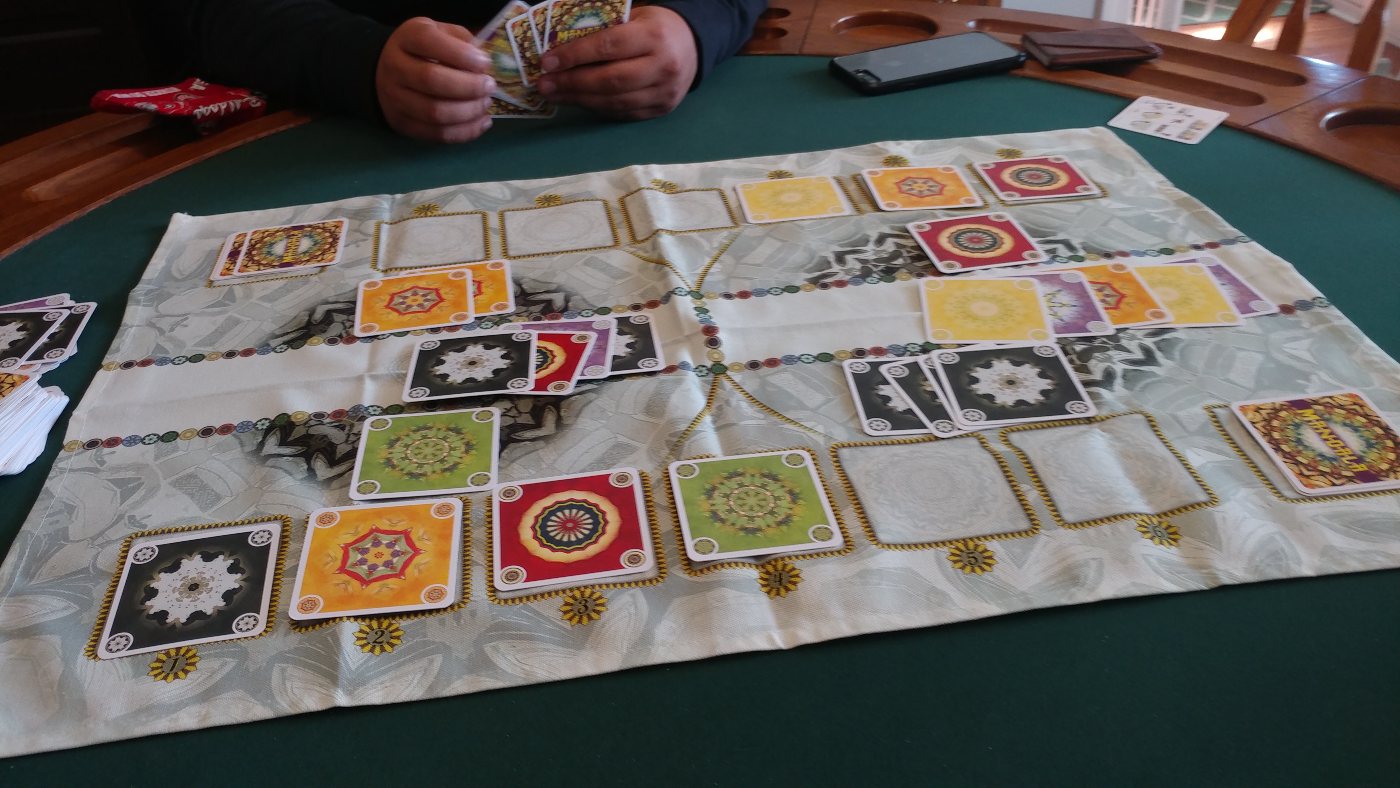
This all sounds pretty straightforward, but there a few rules that you’ll need to follow with your card placement. First, you can never play a card into a section of a mandala if it’s already present in another section. We’re you hoping to play some black cards into your field? Well, you better make sure there aren’t any in the mountain in your opponent’s field!
Once at least one card of every color is present in a mandala (in the mountain or one of the two fields), the mandala is destroyed. The player who had the most cards in their field for that mandala will get to pick a card from the mountain to add to their river or cup, which is where all the scoring happens. Once the mountain is cleared out, the fields are cleared, two cards are added to that mountain, and play continues.
Down to the River
So far, the game seems lime a fairly standard card placement game, but the river and cup are where the real magic happens. As you collect cards from the mountains, you’ll add them to your river if that color isn’t already there. If it is, you add the card face down to your cup.
Here’s where it gets interesting. The earlier in the game a card is added to the river, the less points it is worth. So, if the first card you add to the river is yellow, all of the yellow cards that you collect for the rest of the game will go into your cup. But they will all only be worth one point each! The value of each new card in the river increases by one, so if you manage to grab the sixth color you need (which would end the game), any extra of that color you happen to grab that round would be worth six points each!
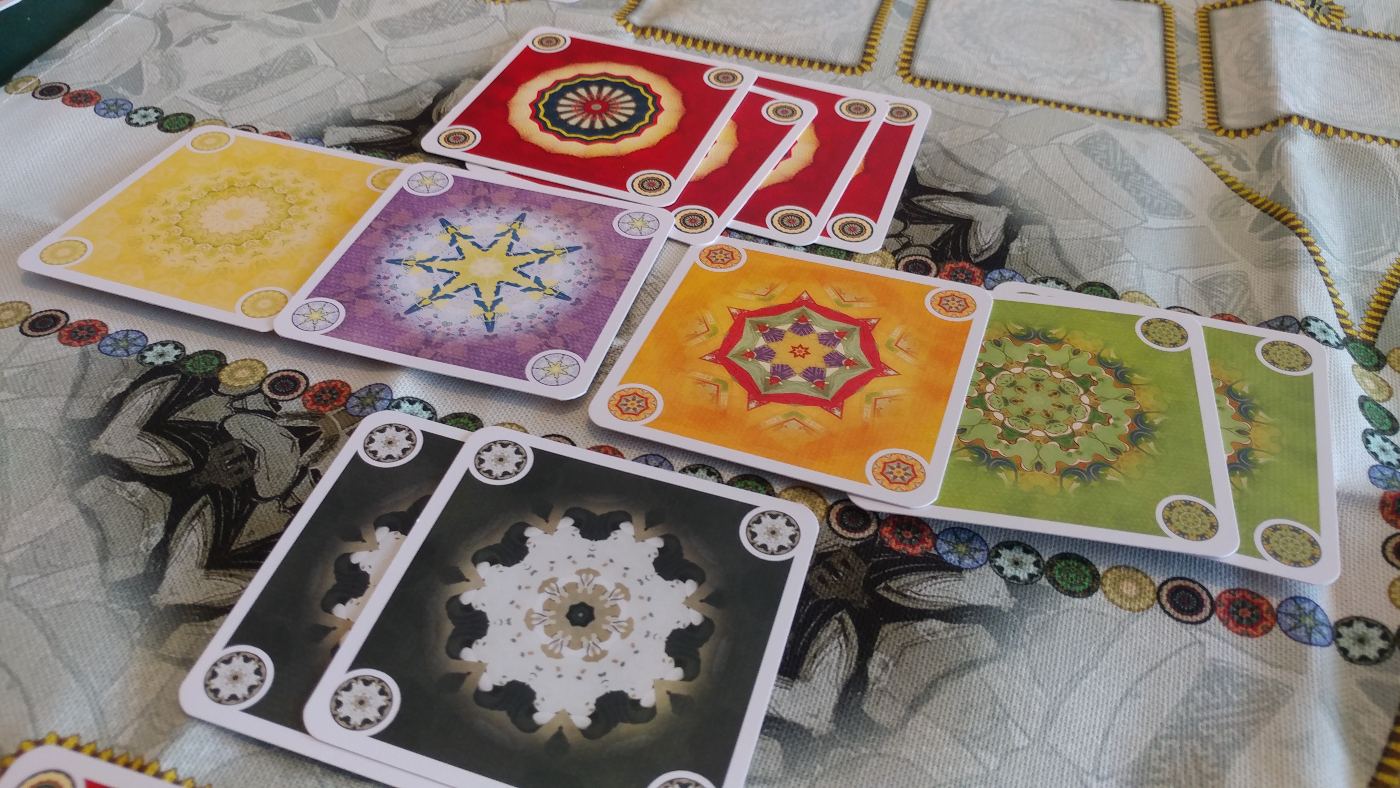
Play continues until someone fills up their river or until the stack of colored cards runs out. At that point, you’ll count up the points from the cards in your cup, and the player with the highest total wins!
A Beautiful Sight
It’s easy to see that the artwork in Mandala is beautiful. The cards all feature the same six beautiful color patterns. I think the artists have done a great job of letting each color have its own unique appearance while also making sure that they all complement one another.
As you begin to play and pick up the mechanics, it really turns into a zen-like experience. Maybe that’s just the visual elements of the game confusing me, but I really did feel like I was relaxed for most of the game. That was, of course, until my opponent would pull off a move that ruined my plans.
While the game has simple rules and the mechanics are easy to follow, there is definitely still room for strategizing. You need to learn to appropriately time when to put cards in the mountain or in your field. When your opponent finishes a mandala that you were just about to play, it can be easy to get frustrated.
Two Mountains, Two Viewpoints
Personally, I really enjoyed Mandala. It enabled me to strategize in a game without getting overly anxious about each turn. The artwork and components are great, and it seems like it would have a wonderful table presence. I also think that it would be a nice game to grab when you’re headed out on vacation.
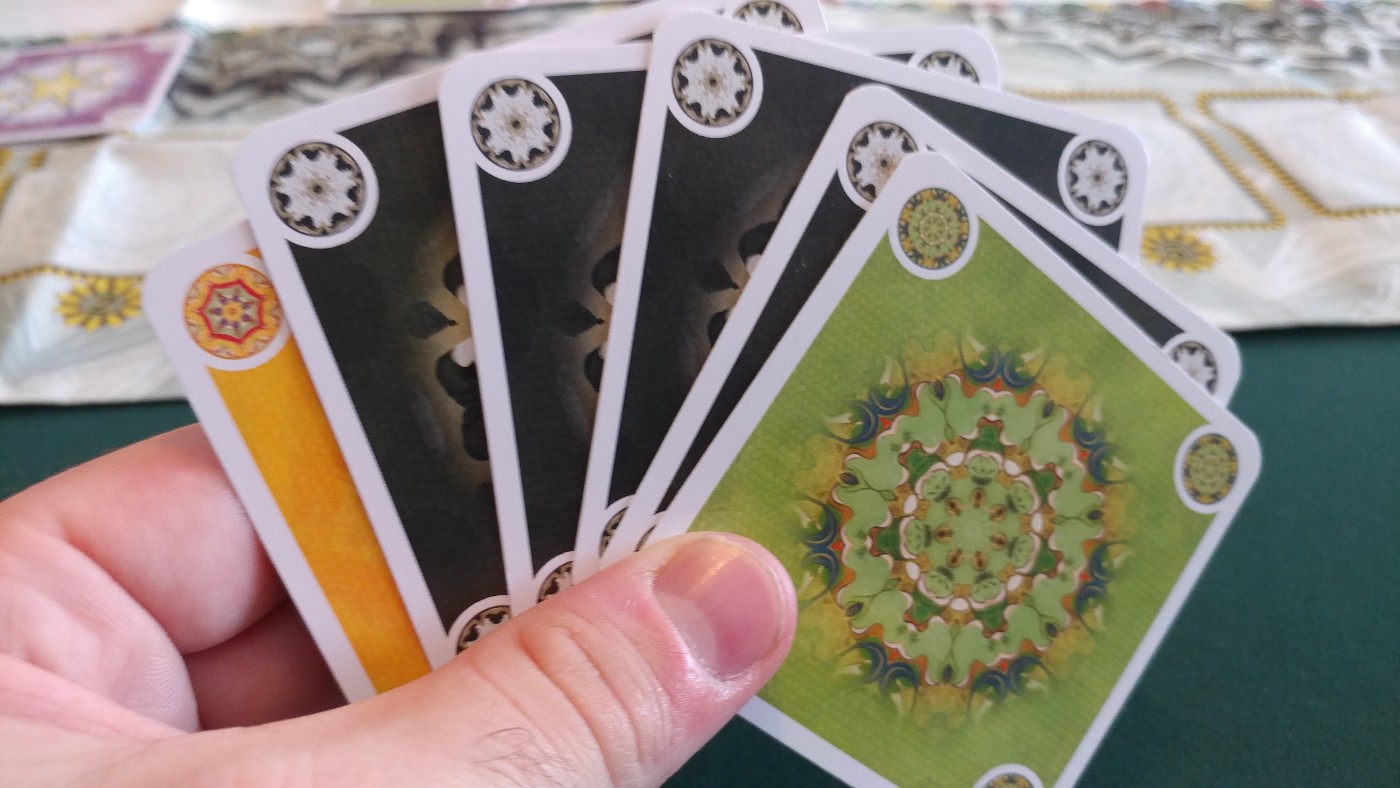
My friend Adrian really enjoyed the game, too. He loved the strategic elements, especially when it came to timing your river just right. He’s definitely a thinker when it comes to games like this, so I could see this making it to the table frequently when our game days resume.
My wife, on the other hand, wasn’t a huge fan. While she liked the concept and really appreciated the art, she felt that the luck of the draw had too much of an impact on player success.
While I can see and appreciate both sides of the story, I think that the pros in this game outweigh the cons. It has its limitations – remember, it’s strictly a two-player game – but it makes up for that with a really solid set of mechanics that are simple to understand but really work well together. So if you’re in the market for a card game for those moments when it’s just you and one other person, you could do a lot worse than Mandala.
Highs
- Easy game to teach
- Competitive but still very chill gameplay
- Excellent art and components
Lows
- Luck of the draw can impact players success

